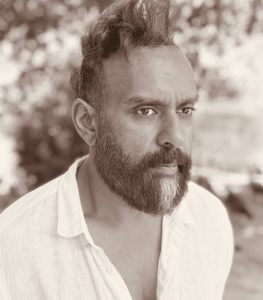
Featured Interview With KHEL KALYAN
Tell us a little about yourself. Where were you raised? Where do you live now?
I was raised in the UK, in a quiet corner where tradition and expectation often loomed large — the kind of place where people don’t question the script, they just follow it. That environment, while comforting in its own way, eventually became the very thing I felt compelled to challenge in my writing.
I still live in the UK today, but I’ve built a life around truth-seeking, creativity, and asking the questions that most people are too afraid to ask.
I don’t have any pets at the moment, though I love animals deeply. There’s something profoundly honest about them — they don’t pretend, don’t perform, and don’t need to justify their existence. I think that’s something we can learn from.
At what age did you realize your fascination with books? When did you start writing?
Books always felt like secret passageways — not to escape the world, but to see it more clearly. I remember being quite young, maybe seven or eight, and sensing that the words on the page carried something deeper than just stories. They were mirrors, doorways, sometimes even weapons against illusion.
But I didn’t start writing seriously until much later. My early years were spent absorbing — observing people, systems, belief structures, all the things we take for granted. The actual writing began when I realised that what I wanted to say wasn’t being said anywhere. That silence became the trigger. I started writing to unsettle the scripts we’ve inherited, to ask questions that cut through conditioning. Once I began, it felt less like a choice and more like something I had to do.
Who are your favorite authors to read? What is your favorite genre to read. Who Inspires you in your writings?
I tend to gravitate toward books that disrupt rather than entertain — works that peel back the layers of illusion rather than add more to them. I don’t read much fiction, not because I don’t appreciate it, but because I’m more drawn to what lies beneath the surface of things — philosophy, mysticism, consciousness, quantum physics, the nature of reality.
Authors like Fritjof Capra (The Tao of Physics) opened my mind early on to the strange overlap between science and spirituality. Krishnamurti remains a constant voice — his clarity cuts through the noise like few others. Osho, for all his contradictions, understood the human psyche in a way most psychologists never will. I also admire writers like Alan Watts and David Bohm, thinkers who speak in that space between intellect and stillness.
Inspiration, for me, comes from those who question the unquestionable — who are more interested in dismantling belief than defending it. My writing isn’t about adding more noise to the world — it’s about clearing space, inviting people back to the raw simplicity of being.
Tell us a little about your latest book?
My latest book is called Make Love Not Marriage. It’s not a relationship guide — it’s a philosophical disruption. The book questions everything we’ve been taught about love, loyalty, romance, and ownership. For too long, we’ve mistaken control for commitment, and tradition for truth. This book aims to undo that.
It’s written for anyone who has ever felt caged inside an idea of love they didn’t choose — for those who sense that monogamy, marriage, or even romance itself may not be the ultimate goal, but rather the beginning of deeper self-awareness.
The book doesn’t offer answers; it offers clarity. It doesn’t tell you how to love — it strips away everything that isn’t love. It’s raw, irreverent, and uncomfortable in parts, but it was never meant to be polite. It was meant to be honest.
Connect with the Author on their Websites and Social media profiles
Leave a Reply